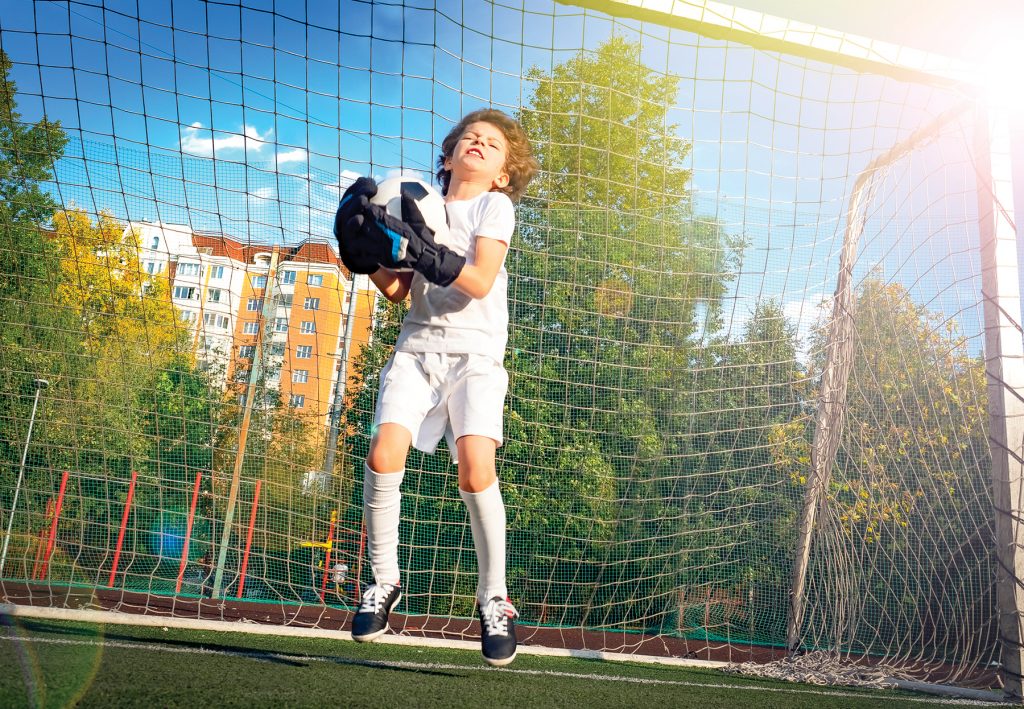Summer is the time for enjoying the great outdoors. However, some popular summer sports – such as baseball and basketball – can expose your teeth to danger. Here are several seasonal activities that could lead to dental injuries and ways to keep your smile safe:
Contact Sports (Soccer, Softball, Basketball, etc.)
Soccer players are more likely than football players to sustain a dental-related injury. Soccer is a sport where a mouth guard and face masks are not mandatory, upping the odds for mouth and face injuries. The types of dental injuries that can occur without the use of a mouth guard are chipped or broken teeth, fractured crowns or bridgework, lip and cheek injuries, root damage to the teeth, fractured jaw, and concussions. While the mouth guard is no guarantee against such injuries it can drastically reduce the risk.
Swimming and Diving
Frequent swimmers may be at risk for developing yellowish-brown stains on their teeth. People who swim more than six hours a week are continually exposing their teeth to chemically treated water. Pool water contains chemical additives, which give the water a higher PH than saliva. As a result, salivary proteins break down quickly and form deposits, known as “swimmers’ calculus,” appear most frequently on the front teeth. Swimmers’ calculus can normally be removed by a professional dental cleaning.
Scuba diving, a sport enjoyed by people in the U.S., can lead to jaw joint pain, gum tissue problems or “tooth squeeze” – pain in the center of the tooth. All of these symptoms add up to what’s called “diver’s mouth syndrome” (also called barodontalgia), a condition caused by the air pressure change involved in scuba diving and by divers biting too hard on their scuba air regulators. Tooth squeeze is caused by the change in air pressure, particularly if a diver has a big cavity, a temporary filling, gum disease, periodontal abscess or incomplete root canal therapy. The best way to avoid these problems is to visit your dentist before scuba diving and make sure your dental health is tip-top. Ask your dentist’s advice about fitting the mouthpiece of an air regulator.
The best way to avoid these problems is to visit your dentist before scuba diving and make sure your dental health is tip-top. Ask your dentist’s advice about fitting the mouthpiece of an air regulator.
- Stock mouth guard: This can be bought “off the shelf” from a drug or sporting goods store. This type of mouth guard offers the least protection because the fit adjustment is limited. While better than nothing, a stock mouth guard is not considered acceptable as a facial protective device.
- Mouth-formed protectors: These mouth guards come as a shell-liner and “boil-and-bite” product from sporting goods stores. The shell is lined with acrylic or rubber. When placed in an athlete’s mouth, the protector’s lining material molds to the teeth and is allowed to set.
- Custom-made mouth protectors: The best choice is a customized mouth guard made by your dentist. The custom mouth guard offers the best protection, fit and comfort level because it is made from a cast to fit your teeth.
Mouth guards are an important piece of athletic equipment for anyone participating in a sport that involves falls, body contact or flying equipment. This includes football, basketball, baseball, soccer, hockey, skateboarding, gymnastics, mountain biking – any activity that might result in an injury to the mouth. When participating in summer sports, a mouth guard is your best ally.
